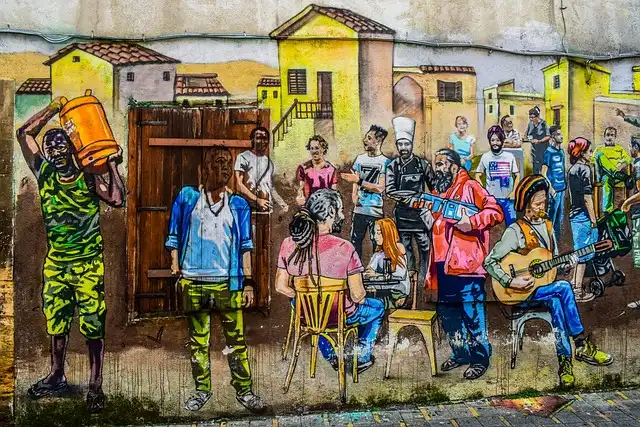Beyond the Harris-Trump debate: How politicians use anti-immigrant rhetoric to mask systemic failures

Politicians, from far-right populists to centrist liberals, use anti-immigrant narratives to deflect attention from deeper systematic issues such as affordable housing shortages, economic inequalities and failing public services.
This unsupported claims, while politically prudent, lugs hazardous effects: it legitimizes discrimination, dehumanizes immigrants– especially racialized people– and commonly turns them into scapegoats for wider societal problems and cumulative temper.
Yvonne Su does not help, seek advice from, very own shares in or obtain financing from any kind of business or organization that would benefit from this post, and has divulged no pertinent affiliations beyond their scholastic appointment.
Even Harris’s migration policies reflect this change in rhetoric. Her concentrate on border enforcement and prevention over more detailed migration reform echoes Trump’s method to securitize the boundary. Her debatable comments throughout a 2021 journey to Guatemala, where she told travelers, “do not come,” strengthened narratives that outlaw movement as opposed to address its origin.
Dehumanizing language is usually racialized, with Black, eastern and brownish immigrants regularly portrayed as offenders, work burglars or drains on public resources. This racism and prejudice are deeply embedded in both the united state and Canadian immigration systems, which have historically dealt with racialized immigrants with even more uncertainty and hostility than their white equivalents.
Discussing travelers as an impending deluge strips them of their self-respect, humanity and originality. Asylum migrants, seekers and refugees are no longer viewed as individuals looking for a far better life, fleeing persecution or escaping hardship and political unrest. They are turned into an anonymous mass endangering financial and social stability.
With a government political election progressively likely in Canada, both the Conservatives and liberals will try to seem like the ones who can regulate immigration, securitize boundaries and focus on resources for Canadians. Consequently, intolerant rhetoric will be inevitable.
We can drop for the political diversions or we can resist attempts to blame immigrants for the failures of governments and demand more financial investment in cost effective real estate, public infrastructure and health treatment. Only by tackling these issues head-on can we really hope to develop a culture where immigrants are treated not as scapegoats, but as amounts to.
In March, the federal government revealed plans to decrease the number of temporary citizens and establish a cap on the number permitted to come to Canada. While acting as a convenient method to seem hard on migration, this does bit more than mask long-lasting underinvestment in health and wellness, real estate and education care.
As the narrative spreads throughout the political range and across borders, it is necessary to unload exactly how it is being utilized, what real-life injury it causes and exactly how it draws away interest from systematic inequalities.
Governmental debates in the USA are usually little bit greater than a platform for candidates to trade disrespects and repeat cases, real and incorrect, regarding different political problems. The dispute between Kamala Harris and Donald Trump was no exception.
Conventional chatting factors have actually long mounted migration as a threat to national identification, homeland safety and security and economic stability. Political leaders, from far-right populists to centrist liberals, utilize anti-immigrant narratives to deflect attention from deeper methodical issues such as economical real estate scarcities, economic inequalities and stopping working public services. These narratives not only dehumanize immigrants however also develop a setting of anxiety and hostility for everybody.
Just how we obtain and react to it is up to us as voters. We can fall for the political diversions or we can resist efforts to blame immigrants for the failures of governments and demand even more investment in inexpensive real estate, public framework and healthcare. Only by dealing with these issues head-on can we wish to develop a society where immigrants are dealt with not as scapegoats, however as equates to.
The logic is quite basic: asylum immigrants, evacuees and applicants can be deported for devoting a criminal activity. So, why would they risk being sent back home after the substantial effort they made to reach their location?
Political leaders, from far-right populists to centrist liberals, make use of anti-immigrant narratives to deflect interest from deeper systematic problems such as budget-friendly housing lacks, financial inequalities and stopping working public solutions. These narratives not only dehumanize immigrants yet additionally develop a setting of worry and hostility for everyone.
1 academic appointment2 company or organization
3 disclosed no relevant
« Steve Biko’s murder exposed deep racism in how medicine was taught and practised in South AfricaKamala Harris effectively baited Donald Trump during the debate, drawing out his insecure white masculinity »
